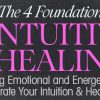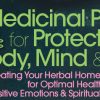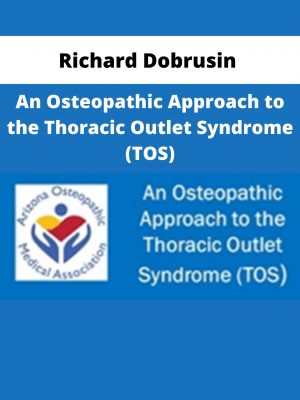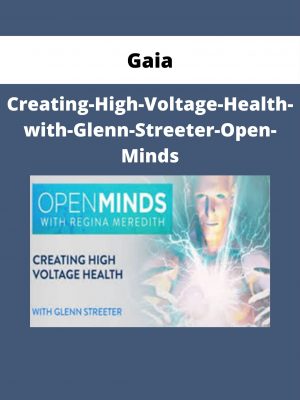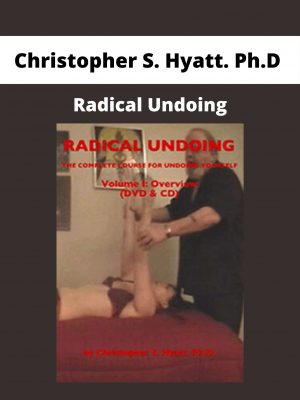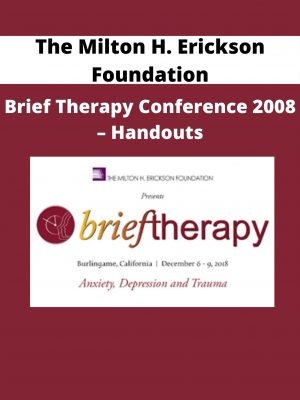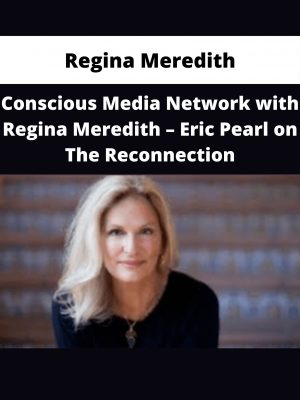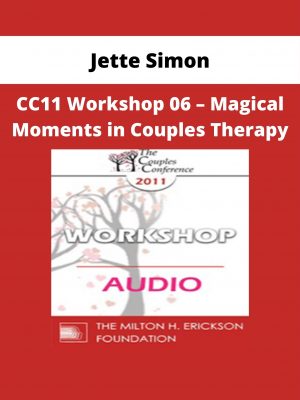David Crow, LAc – Ayurvedic Aromatherapy 7 Module Course with David Crow
$198 Original price was: $198.$33Current price is: $33.
Shopping Instructions:
- DISCOUNT 15% : SHOP15
- Product Delivery: Within 1 – 12 hours after purchase.
Central to Ayurvedic practice is a recognition that true health requires balancing your constitutional type, or “dosha,” with the right combination of diet, activities and specific remedies.
David Crow, LAc – Ayurvedic Aromatherapy 7 Module Course with David Crow
Discover How to Use Essential Oils to Restore Your Energy, Increase Your Vitality, Foster Optimal Wellness and Advance Your Spiritual Growth Through the Practical, Time-tested Healing Power of Ayurvedic Methods
Uncover the Specific Essential Oils Most Beneficial to Your Personal Constitution to Enhance Your Immune System, Cultivate More Life Force, Dispel Inflammation, Relax Your Mood and Much More
If you’re interested in the use of essential oils, then you’ll want to know more about Ayurveda, an ancient healing science from India that gives us a sophisticated understanding of essential oils and their effects on our physical and subtle bodies.
Ayurvedic practitioners have long married insights into the energetic systems of our being with practical wisdom on how our body functions.
These include cosmological energies such as agni (solar heat and metabolic fire), soma (cooling and moistening lunar influences), the pancha mahabhutas (five elements of earth, water, fire, air and space), prana (life force) and the gunas (sensory qualities and mental states).
Using these systems and concepts, essential oils are classified into broad categories of therapeutic functions, which allows us to easily understand the primary nature and impact of these oils so that we can apply them safely and effectively.
What Are the Right Oils for Your Energetic Type?
Central to Ayurvedic practice is a recognition that true health requires balancing your constitutional type, or “dosha,” with the right combination of diet, activities and specific remedies.
The primary doshas are vata, pitta and kapha, and there are 15 sub-doshas underneath those three. Each dosha requires a different approach to balance or support it in order to create the foundation for radiant health.
Understanding your personal constitution and the specific treatments to address and correct imbalances in your unique system results in enhanced vitality, a resilient immune system and calmer emotions.
Put simply, you feel and look better!
That’s because when you get out of energetic balance, your system becomes dis-harmonious and prone to disease and dysfunction. Something just feels “off.” You might become moody, sluggish, depressed or anxious, depending on your dosha type.
For example, vata types are prone to feeling ungrounded and cold, with flighty temperaments, unless they are properly balanced. Pitta types can get too fiery and emotionally unstable, whereas kapha types are prone to sluggishness.
Left untreated, imbalances in your energy system can sabotage your health and undermine your optimal performance.
That’s where essential oils come in. They offer one of the easiest ways to put you on the path to good health.
The aromatic substances in essential oils can have a profound effect on your body, emotions and mind, helping to trigger the brain and immune system to respond in specific ways.
There is now solid research that shows that aromatic compounds trigger our neurochemistry in specific ways, which then affects how our whole body relates to stressors.
Ayurveda illuminates how these effects are related to different constitutional types. The same oil might be aggravating to a pitta person or soothing to a kapha person.
This level of specificity enables you to customize your approach to healing and wellbeing. You can begin to diagnose HOW you are out of balance and apply specific, non-invasive essential oil remedies that revitalize and restore your natural health.
A Breakthrough in Healing on the Subtle Levels
In this exciting online program, Ayurvedic Aromatherapy, you have the chance to learn from David Crow, one of the most respected botanical medicine pioneers in the world, who will teach you how to approach healing safely and effectively with essential oils using Ayurvedic principles.
While we will study ancient remedies specifically from the East, we’ll also explore how to apply an Ayurvedic understanding to essential oils that were not even known in ancient India.
You’ll discover what’s important for each energetic type as well as how to receive the most benefit from specific remedies using oils such as rose, vetiver, sandalwood, agarwood, jatamansi, lentisque, dwarf juniper and helichrysum.
You’ll understand how to improve your concentration and memory, ground and calm yourself, heal your circulatory system, treat skin conditions, access higher consciousness and much more.
You’ll also discover how to reduce stress and promote deep and restorative sleep.
On a practical level, you’ll explore the safe topical and diffuser applications of oils as well as how to use aromatic baths, medicated oils, steam treatments and other therapies inspired by Ayurvedic methods.
We’ll also go beyond formulas to a much deeper, richer and more multi-faceted understanding of medicinal botanicals. In the modern West, we’ve been raised to think of plants as objects that exist chiefly for our pleasure and consumption. We use them to nourish our bodies and beautify our gardens and homes.
The truth is that plants, and the essential oils we derive from them, are so much more than that. They can help you evolve on many levels. They can detoxify your body, purify your mind, rebalance your emotions and reboot your energy. They can help you heal disease and expand your vision. Plants can also reveal to you an entirely different relationship with the natural world.
As you learn to open to the deeper blessings of plants through the wise use of essential oils, you can receive more of their healing and medicinal powers and put yourself on a path to higher consciousness.
Ancient healers and medicine men/women discovered many hidden aspects of the plant kingdom and passed down that knowledge in the Ayurvedic lineage. Now you can harvest the best of this healing tradition to create a new, expansive and natural approach to healing for your health and wholeness in David’s new 7-module program.
A New Paradigm of Relating to Essential Oils
Rather than sifting through and distilling an endless array of information on your own, you can take an online course with a master guide who has dedicated his life to exploring, classifying and documenting the practical, medical, psychological and spiritual powers of essential oils and how to safely use them in an Ayurvedic way.
Floracopeia founder David Crow, LAc is one of today’s greatest synthesizers of the vast knowledge contained within the plant kingdom. He not only has assimilated the research, he’s spent decades immersed in the ancient healing arts.
He can guide you through the hype and misinformation common in this field. Science tends to view the esoteric healing lore of essential oils with skepticism, preferring the cold, clinical certainty of pharmaceutical drugs.
David has journeyed deep into the Ayurvedic tradition as well as the Chinese tradition and studied with masters the world over.
He’s deeply trained in spiritual practices as well as healing traditions, so he shows you not just what to take but how to have a wholly new relationship with essential oils derived from plants.
Practical Healing Wisdom for You
In Ayurvedic Aromatherapy, David has synthesized proven techniques, tips and strategies for accessing the profound healing, restorative, medicinal and spiritual powers of essential oils in seven information-rich modules.
With all the poor-quality information about essential oils floating around, many people have had sub-optimal experiences with them. David will help clear away the misconceptions and show you safe, non-invasive and effective ways to use essential oils to balance your body, harmonize your environment and optimize your wellbeing.
He’ll explain the critical role essential oils can play in purification and detoxification of the body and mind.
He’ll escort you across the threshold of an enthralling new world that empowers effective healing and nourishment of your body, mind and soul — and those of your loved ones.
You’ll never look at essential oils the same way again. When you choose to take this journey with David, you’ll gain a profound understanding that links biology, ecology and spirituality with a felt sense of connection with all of life.
In every class, you’ll gain important information about essential oils that can enhance your physical and emotional wellbeing. Ultimately, you’ll see that each and every plant, herb and flower can open a pathway into a deeper relationship with your body, mind and soul — and thus serve as a portal to personal transformation.
By the end of the journey, you’ll have a solid foundation in place for a lifetime of safe use of essential oils for your body, mind and spirit in an Ayurvedic way.
During this 7-module program, you’ll discover:
- How Ayurveda uses aromatic plants for medicines and aromatherapy
- The safe uses and potential dangers of essential oils
- How to use aromatic baths, medicated oils, steam treatments and other therapies inspired by Ayurvedic methods to address common symptoms and to complement and uplevel your health practices
- The traditional therapeutic uses of Indian attars (sandalwood-based perfumes)
- How to use essential oils such as vetiver that are rich in earth element for grounding and calming
- The uses of essential oils such as cinnamon and other spices that are rich in fire element for stimulating metabolism
- How oils such as sandalwood and palo santo can promote sattvic (spiritual) consciousness
- Simple ways to use flower oils such as lavender and chamomile to calm rajasic (aggressive) emotions
- The most important essential oils for calming vata, cooling pitta and decongesting kapha types
- How common essential oils can be used for the sub-doshas, such as how rosemary can strengthen the Prana Vata of the brain to enhance concentration and memory
- How essential oils can be correlated and used for the seven tissue levels as described by Ayurveda
- How to use important essential oils and medicated herbal oils for the musculoskeletal system
- The wound-healing powers of essential oils such as frankincense
- The difference between inflammatory reactions to essential oils and true detoxification
- The numerous essential oils containing herbs and spices that can be safely used in teas and cooking for supporting healthy digestion and metabolism
- How to use fragrance for stimulating the appetite in the elderly or in chemotherapy patients
- Unique essential oils that promote deep sleep, healing dreams and resolution of mental and emotional tension
- And so much more…
This program is appropriate for anyone intrigued by the healing and evolutionary benefits of botanical medicine as well as professionals in any discipline who work with essential oils. For those that are complete beginners and do not understand Ayurvedic terminology, David will be providing in-depth, start-to-finish instruction.
You’ll benefit from David’s more than 30 years of studying the healing powers of plants in various cultures with many gifted teachers — from the shamanic traditions of the Amazon to the alchemical mysteries of the Himalayas to the ancient wisdom of Ayurvedic and Chinese medicine.
We’re confident you will find this unique offering deeply enriching and practical.
What You’ll Discover in These 7 Modules
In this 7-module transformational program, David will guide you through the fundamental skills and competencies needed for understanding this unique approach to aromatherapy.
Ayurvedic Aromatherapy will look at aromatherapy through the lens of Ayurvedic medicine, offering a new synthesis of these powerful healing modalities that’s safe and effective in optimizing your wellbeing.
Each module, designed to be practiced weekly, will build harmoniously upon the previous ones so that you’ll develop a complete, holistic understanding of the practices, tools and principles for addressing specific therapeutic applications of essential oils and understand these uses from an Ayurvedic point of view.
Module 1: Essential Oils & Aromatic Plants in Ayurveda
Ayurveda is a richly fragrant medical system. Every aspect of treatment and therapy is infused with aromas, which are emanating mostly from the essential oil content of the herbal ingredients being used. It is these aromas (and flavors) that provide many of the therapeutic benefits one enjoys when using Ayurveda’s vast number of diverse preparations.
In this module, you’ll:
- Explore how Ayurveda uses aromatic plants for medicines and aromatherapy
- Discover the most important essential oils produced in India
- Identify the safe uses and potential dangers of essential oils
- Know when to use aromatic plants instead of essential oils
- Understand how to use aromatic baths, medicated oils, steam treatments and other therapies inspired by Ayurvedic methods
- Discover the traditional therapeutic uses of Indian attars (sandalwood-based perfumes)
Module 2: Using Essential Oils According to the Pancha Mahabhutas (Five Elements)
Essential oils can be classified according to Ayurveda’s system of five universal elements of earth, water, fire, air and space. By understanding the predominant element or mixture of elements within an oil, we are better able to apply the oil therapeutically to balance these elements within ourselves.
In this module, you’ll:
- Find out how to use essential oils, such as vetiver, that are rich in earth element for grounding and calming
- Discover a wide range of carrier oils and aromatic waters for hydration and balancing of the water element
- Explore the uses of essential oils such as cinnamon and other spices that are rich in fire element for stimulating metabolism
Module 3: Using Essential Oils According to the Gunas (Mental & Physical Qualities)
Essential oils can be classified according to the three qualities of consciousness: sattvic (spiritual), rajasic (aggressive) and tamasic (dullness). They can also be classified according to Ayurveda’s system 10 opposite pairs of qualities, such as heating/cooling, drying/moistening and so on. Classifying oils according to their physical qualities and their effects on consciousness helps us understand and apply their therapeutic benefits.
In this module, you’ll:
- Explore ways to use oils such as sandalwood and palo santo for promoting sattvic (spiritual) consciousness
- Discover how to use flower oils such as lavender and chamomile to calm rajasic (aggressive) emotions
- Identify simple ways of using energizing oils such as laurel to overcome tamasic consciousness (mental dullness)
- Understand how to classify and use essential oils according to their primary qualities of heating/cooling, stabilizing/activating, moistening/drying and other polarities
Module 4: Using Essential Oils According to the Doshas & Sub-doshas (Biological Systems)
One of the most important ways to classify essential oils is according to the doshas, or constitutional body types. For vata conditions, oils that are warming, heavy, stabilizing, calming and strengthening should be used to help lubricate dryness and relax an overstimulated but fatigued nervous system. For pitta conditions, oils that are cooling, calming and relaxing can be used for counteracting inflammation as well as overheated and aggressive mental and emotional states. For kapha conditions, oils that are light, warm, stimulating, energizing, decongestant and expectorant are used to counteract slow metabolism, lethargy and congestion of fluid and phlegm.
In this module, you’ll:
- Understand how the gunas (qualities) and elements of essential oils are related to individual body types
- Discover the most important essential oils for calming vata, cooling pitta and decongesting kapha
- Explore the Ayurvedic system of the 15 sub-doshas (five vatas, five pittas, five kaphas), and how essential oils can be correlated to each
- Find out how common essential oils can be used for the sub-doshas, such as how rosemary can strengthen the Prana Vata of the brain to enhance concentration and memory
Module 5: Using Essential Oils According to the Dhatus (Tissue Levels)
Essential oils and aromatic plants can be applied in various ways to benefit each of the tissue levels described by Ayurveda. These treatments include aromatic preparations for the digestive juices, blood, muscles, fat, bones, marrow and reproductive system.
In this module, you’ll:
- Identify how essential oils can be correlated and used for the seven tissue levels as described by Ayurveda
- Be introduced to unique essential oils such as lentisque and dwarf juniper for benefitting the lymphatic system
- Discover how essential oils such as helichrysum can have profound healing effects on circulation, soft tissue and skin conditions
- Understand how to use important essential oils and medicated herbal oils for the musculoskeletal system
- Discover the wound-healing powers of essential oils such as frankincense
Module 6: Using Essential Oils for Increasing Prana & Ojas (Life Force & Nutrient Essence)
Essential oils are secondary metabolic compounds produced by plants for a variety of biological purposes, primarily immunological and reproductive. Because of the anatomical and physiological parallels between humans and plants, these compounds can be used therapeutically to enhance our own immunological resistance and rejuvenate the nutrient essence that supports both consciousness and sexual vitality.
In this module, you’ll:
- Understand how essential oils are the pranic immune power of aromatic plants, and how they benefit human health
- Discover how exotic floral oils such as jasmine and rose are the ojas of plants, and how they can support and strengthen our ojas (nutrient essence)
- Determine how to use the antimicrobial powers of essential oils to increase respiratory immunity and fight infections
- Discover how essential oils, such as lemon balm, can strengthen and support the prana and ojas of memory and cognitive function
- Discover unique incense plants such as agarwood that support prana and ojas by deepening meditation
Module 7: Using Essential Oils to Enhance Agni (Metabolic Fire) & Reduce Ama (Toxins)
A great number of essential oils are distilled from spice plants. These oils have powerful stimulant effects on digestion and metabolism, but must be used with caution and in special preparations. If used correctly, these oils and the aromatic herbs and spices they come from are immensely beneficial for a wide range of digestive conditions and for supporting detoxification.
In this module, you’ll:
- Understand the difference between inflammatory reactions to essential oils and true detoxification
- Identify safe external applications of essential oils for strengthening digestion
- Discover the numerous essential oils containing herbs and spices that can be safely used in teas and cooking for supporting healthy digestion and metabolism
- Determine how to use fragrance for stimulating the appetite in the elderly or in chemotherapy patients
- Discover unique essential oils that promote deep sleep, healing dreams and resolution of mental and emotional tension
- Understand how to use eucalyptus and other decongestant and expectorant oils to clear the respiratory system
The Ayurvedic Aromatherapy Bonus Collection
In addition to David’s transformative 7-module online training, you’ll receive these powerful training sessions with the world’s leading visionaries and teachers. These bonus sessions will complement what you’ll learn in the course and deepen your understanding and practice.
20% Discount From Floracopeia Store
As part of your participation in the course, you’ll receive a 20% savings on any purchases you’d like to make from David’s Floracopeia online store. Immerse yourself in the experience of how essential oils smell when they’re expressing their full potential. Floracopeia’s oils are among the finest in the world and are excellent for use in training.
(Note: no purchase is required for the course. In addition, it is not required to use Floracopeia oils. You may use whatever oils you’d like to use for your training.)
Hua Lu: Using Essential Oils & Aromatherapy According to Traditional Chinese Medicine
Downloadable Course From David Crow
In this 3-hour bonus course, David presents the art and science of aromatic botanical medicine through the lens of traditional Chinese medicine, one of the world’s greatest healing systems.
Hua means “flower,” and lu means “dew.” This term describes how drops of aromatic water are collected during the creation of an exquisite perfume, made by distilling neroli flowers (Citrus aurantium, chih shih ) together with chen xiang (agarwood, Aquillaria agalocha). You will follow along with David, through both audio recordings and written material, as he illustrates the vast and profound wisdom of traditional Chinese medicine and how it applies to the use and study of aromatic plants and their essential oils.
Frankincense & Myrrh
Audio Recording From David Crow
This is a live presentation recorded at the Medicines From The Earth Symposium in North Carolina in 2006. David presents on the history, culture and medicinal uses of frankincense and myrrh resins and essential oils. It also covers the larger topic of resin medicines in general, and gives numerous examples of other species from around the world.
Read more: https://archive.ph/YrSa6
Course Features
-
Lectures
0 -
Quizzes
0 -
Duration
50 hours -
Skill level
All levels -
Language
English -
Students
402 -
Assessments
Yes
Related products
HEALTH & MEDICAL
Gaia—Creating-High-Voltage-Health-with-Glenn-Streeter-Open-Minds
HEALTH & MEDICAL
HEALTH & MEDICAL
HEALTH & MEDICAL
Regina Meredith – Conscious Media Network with Regina Meredith – Eric Pearl on The Reconnection
HEALTH & MEDICAL
HEALTH & MEDICAL
CC11 Workshop 06 – Magical Moments in Couples Therapy – Jette Simon

